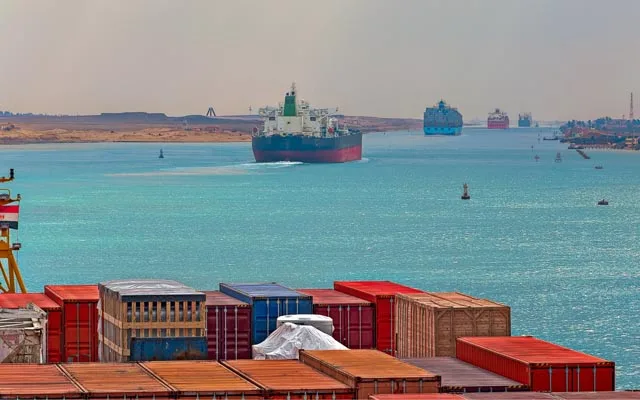
What is Reshoring? A Strategic Shift in the UK’s Industrial Landscape
Over recent years, the term “reshoring” has gained prominence in business and policy discussions, symbolising a strategic reversal of decades-long trends towards globalisation. For industries and economies, the process represents not just the movement of production closer to home but also a recalibration of supply chain priorities to balance efficiency with resilience. Key global events, including the COVID-19 pandemic and the Ever Given container ship’s infamous accidental blockage of the Suez Canal, have underscored the fragility of extended supply chains. In response, reshoring has emerged as a solution, with the UK playing a pivotal role in redefining its industrial and logistical frameworks.
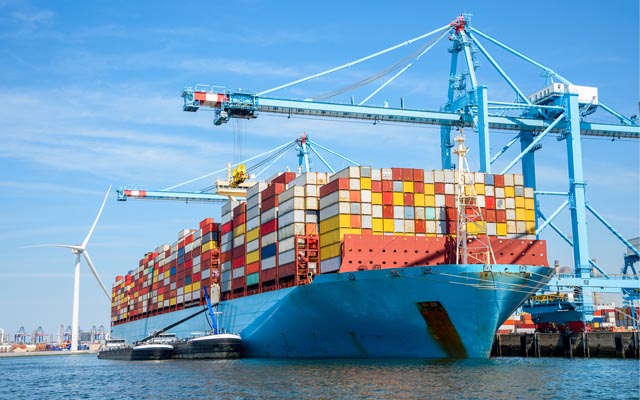
What is Reshoring? An Overview for the Layperson
At its core, reshoring refers to the process by which companies relocate production or sourcing activities back to the country where goods are sold, reversing decades of offshoring trends. Historically, businesses sought cost savings by outsourcing manufacturing to countries with lower labour costs, such as China or Vietnam. While these strategies initially proved cost-effective, they created complex and often vulnerable supply chains. Reshoring prioritises proximity over cost, enabling companies to reduce transportation risks, enhance quality control, and meet sustainability goals.
For consumers, reshoring means more locally made products, shorter lead times, and the potential for stronger domestic industries. For businesses, it reflects a shift in focus towards long-term resilience and adaptability, increasingly crucial in a rapidly changing world.

A Brief History of Reshoring
Reshoring is not a new concept. It first gained traction in the early 2000s as manufacturing costs began rising in traditionally low-cost regions. However, it took the global disruptions of the last decade to bring the idea to the forefront. The COVID-19 pandemic exposed the risks of global dependency, with production halts and logistical bottlenecks affecting everything from healthcare supplies to consumer goods. In 2021, the Ever Given’s six-day jamming of the Suez Canal further highlighted the vulnerabilities of global trade, as the incident disrupted the movement of over $9 billion worth of goods daily.
These crises revealed a clear need for shorter, more controllable supply chains. For the UK, reshoring aligns with its broader economic priorities, particularly following Brexit, which has added complexities to European trade relationships. The trend offers opportunities for revitalising domestic manufacturing, fostering innovation, and addressing environmental concerns by reducing reliance on international shipping.
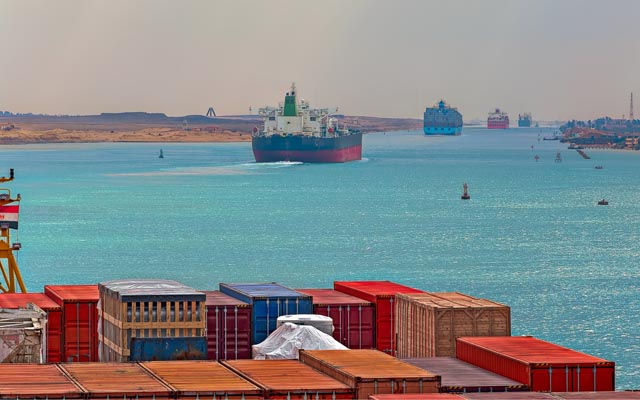
Reshoring in the UK: The Current Landscape
The UK’s reshoring journey is gathering momentum, supported by both government initiatives and private-sector investments. Programmes to stimulate domestic production, reduce dependency on imports, and enhance the competitiveness of UK manufacturing have gained traction.
Industries such as advanced manufacturing, pharmaceuticals, and automotive have taken the lead in reshoring efforts. For example, the resurgence of the electric vehicle market has driven investment in UK-based battery production, reducing reliance on overseas suppliers. Similarly, sectors such as food production and technology are reassessing their operations to prioritise local suppliers.
However, reshoring is not without challenges. Labour shortages, high energy costs, limited development opportunities, and the need for specialised infrastructure have tempered the pace of adoption. Success depends on building an environment where businesses can feel confident in investing in the domestic relocation of their supply chains.
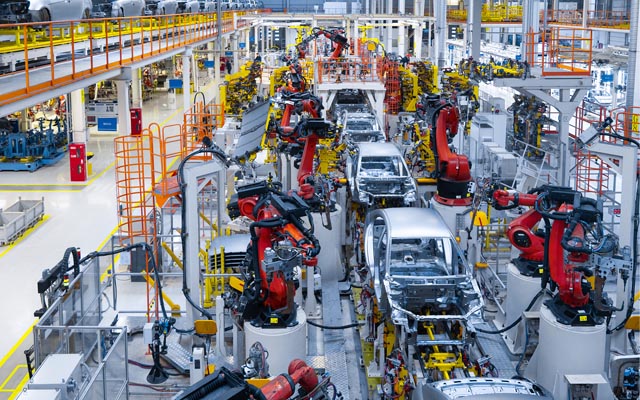
Reshoring’s Broader Impacts
The benefits of reshoring extend far beyond corporate balance sheets. For the public, the trend promises economic revitalisation, with job creation at the forefront. Reviving domestic manufacturing can strengthen regional economies, reduce unemployment, and foster skills development. It also promotes environmental sustainability by decreasing the carbon footprint associated with transporting goods across continents.
Reshoring also reinforces national resilience, ensuring that critical goods such as medical supplies and food remain accessible during times of global disruption. By investing in reshoring, the UK is better positioned to weather future crises and build a robust, self-reliant economy.

Panattoni UK: Building Reshoring-Ready Infrastructure
As the UK continues to embrace reshoring, Panattoni UK is leading the charge in providing the infrastructure necessary to support this transition. A global leader in industrial logistics warehouses, Panattoni is an essential partner for businesses looking to reshore operations.
Panattoni recognises that reshoring requires more than just strategic decisions – it demands facilities located and tailored to meet modern production and distribution needs, such as its industrial units in Sheffield. With a build programme designed to maximise efficiency, flexibility, and sustainability, Panattoni ensures its developments align perfectly with reshoring’s objectives.

Addressing Supply Chain Vulnerabilities
The challenges revealed by COVID-19 and the Suez Canal blockage have reaffirmed the importance of resilient supply chains. Panattoni’s developments are strategically located to support businesses in mitigating these risks. By positioning warehouses close to major transport hubs, skilled labour, and consumer markets, Panattoni enables companies to reduce lead times, enhance responsiveness, and maintain tighter control over operations.
Sustainability as a Core Principle
Panattoni’s approach also aligns with the environmental imperatives of reshoring. With warehouses built to meet high sustainability standards, including BREEAM ‘Excellent’ ratings and net-zero carbon in construction goals, Panattoni offers facilities that reduce operational energy consumption and environmental impact. These eco-friendly credentials are essential as businesses prioritise sustainability in their reshoring strategies.
Supporting Industry Growth
By stimulating investment to provide state-of-the-art industrial facilities, Panattoni is catalysing the growth of reshoring-ready industries. Its developments cater to diverse needs, from large-scale manufacturing operations to last-mile logistics. Furthermore, Panattoni’s focus on futureproofing ensures that businesses investing in their spaces can remain competitive amidst evolving market demands.
A Strong Investment Outlook
Reshoring represents not just a response to past crises but a forward-looking strategy to strengthen the UK’s economic foundations. Panattoni’s commitment to supporting this shift makes it an invaluable partner for investors seeking long-term value and confidence in their assets. With warehouses designed to accommodate the demands of modern supply chains, Panattoni offers businesses a secure platform for growth.
For businesses considering reshoring, Panattoni provides more than just physical infrastructure – it offers a strategic advantage. By choosing Panattoni, companies can align themselves with a partner that understands the complexities of reshoring, anticipates industry needs, and delivers solutions that drive success.
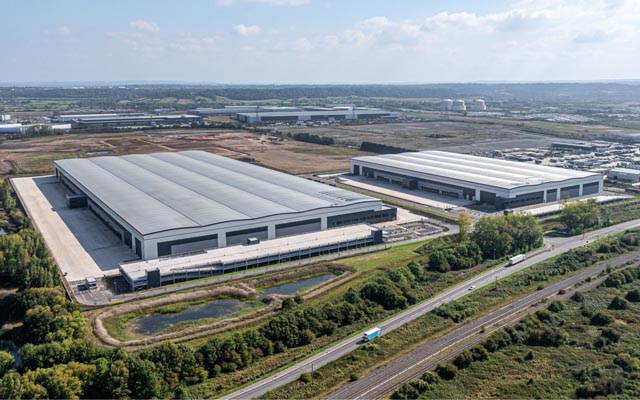
The Future of Reshoring in the UK
As reshoring continues to evolve, the UK has an opportunity to lead by example. By fostering innovation, investing in infrastructure, and supporting sustainable practices, the nation can build an economy that is not only competitive but also resilient and equitable.
Panattoni UK is at the forefront of this sea change, demonstrating how industry leadership and long-term vision can turn reshoring from a challenge into an opportunity. Through strategic investments and a commitment to excellence, Panattoni is helping shape a future where businesses, communities, and the environment can thrive together.
FAQs
What is a Reshoring Example?
An excellent example of reshoring in the UK is the decision by Jaguar Land Rover to move production of some components for its vehicles back to the UK. This move allowed the company to reduce its reliance on overseas suppliers, enhance quality control, and mitigate supply chain disruptions. The initiative is a clear demonstration of what reshoring is – a strategic decision to bring production closer to home to improve efficiency, sustainability, and resilience. The automotive sector has been at the forefront of reshoring in the UK, particularly with investments in electric vehicle battery manufacturing. These examples illustrate the growing importance of reshoring as a competitive strategy.
What Are the Benefits of Reshoring?
The benefits of reshoring are numerous and extend beyond businesses to society at large. For companies, reshoring strengthens supply chain resilience by reducing reliance on distant suppliers, which can be vulnerable to disruptions such as those seen during the COVID-19 pandemic. It also offers improved quality control and shorter lead times, allowing businesses to respond quickly to market demands.
Reshoring also delivers economic benefits by revitalising domestic industries, creating jobs, and fostering skills development. For instance, increasing local production boosts employment opportunities in manufacturing and logistics while reducing the environmental impact of transporting goods globally. This shift aligns with sustainability goals, making businesses more attractive to eco-conscious consumers.
The broader public benefits as well. Reshoring enhances national resilience by ensuring a stable supply of essential goods, from food to medical supplies. Moreover, it contributes to economic growth by strengthening local economies and reducing trade imbalances. These multifaceted advantages underscore why reshoring is gaining traction across industries.
What is the Difference Between Offshoring and Reshoring?
Offshoring and reshoring represent opposite strategies in supply chain management. Offshoring refers to the relocation of production or business processes to countries with lower labour or operational costs. For decades, companies turned to offshoring to maximise cost savings, taking advantage of cheaper wages and materials in regions such as Asia or Eastern Europe.
In contrast, reshoring involves bringing production back to the company’s home country. The decision to reshore is often driven by a need to address the risks associated with offshoring, such as long lead times, quality issues, or vulnerability to global disruptions. For instance, businesses that previously offshored manufacturing to China might reshore to the UK to reduce dependence on international logistics and ensure consistent product quality.
Understanding what reshoring is and how it differs from offshoring highlights a broader shift in business priorities, from cost minimisation to risk management and sustainability.
What is Reshoring AQA A Level Business?
In AQA A Level Business, reshoring is studied as part of supply chain management and operational strategy. It refers to the process of moving production or sourcing closer to a company’s home market. The concept is explored in the context of how businesses make strategic decisions to address risks, improve efficiency, and align with market trends.
Students are taught to understand what reshoring is and evaluate its implications, including the benefits and challenges for businesses. Key case studies might include real-world examples such as UK manufacturers reshoring to reduce dependency on global suppliers. Topics like supply chain resilience, ethical considerations, and sustainability often frame discussions about reshoring, making it a relevant and dynamic area of study for A Level students.
By analysing reshoring, students gain insights into how businesses adapt to changing global conditions and prioritise long-term success over short-term gains. Understanding these dynamics is essential for anyone studying modern business practices.
